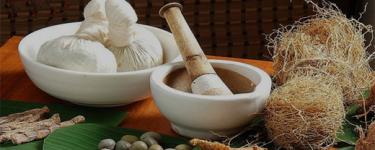Diabetes and Hyper tension

Diabetes Mellitus is a chronic metabolic disorder in which the body is unable to make proper use of glucose, resulting in the condition of hyperglycemia (high blood sugar). Excess glucose in the blood ultimately results in high levels of glucose being present in the urine (glycosuria). This increases the urine output, which leads to dehydration and increased thirst.
Glucose comes from the food we eat and is also made in liver and muscles. The blood carries glucose to all the cells in our body. Insulin, a chemical (or hormone) produced in the pancreas, is responsible for the uptake of glucose into cells for energy. Decreased levels of insulin affects this mechanism leading to increased glucose in the blood stream.
Factors that are often responsible for causing diabetes are excessive intake of foods which are difficult to digest, such as fried foods, creams, etc. Lack of exercise, mental stress and strain, excessive sleep, overeating and consequent obesity, excessive intake of sugar and refined carbohydrates, Overloading of proteins and fats can also lead to diabetes. Hereditary factors also play role in causing diabetes.
In Ayurveda, Diabetes Mellitus is known as Madhumeha (Madhu means ‘honey’ and Meha means ‘urine’). Medhumeha is categorized as Vataj Meha (a problem caused by aggravation of Vata or Air). Vata is an Ayurvedic humor symbolizing wind and dryness. Deterioration of the body is a characteristic that indicates impairment of Vata. Maximum deterioration of dhatus (body tissues) occurs in this type of disease and this is the reason why all vital organs are affected by Diabetes. The other prime cause of Diabetes Mellitus is impaired digestion. Impaired digestion leads to accumulation of specific digestive impurities which accumulate in the pancreatic cells and impair the production of insulin.
Ayurveda does not regard Diabetes as a disease that can be treated by mere medicine or by a dietary regimen. Madhumeha is classified as a Maha Rog (Major Disease) because, if not treated in time, it can lead to several complications in the body, including eye problems, joint pains, impotency, kidney failure, sexual and urologic problems, and more. Diabetes is a metabolic disorder and it cannot be merely treated by controlling sugar levels. The treatment recommended in Ayurveda – as against modern medicine – is aimed at rejuvenating the body to not only balance sugar levels, but also ensuring that no further complication is caused.
The Ayurvedic treatment for this disease is based on an entire change in the lifestyle of the person. Along with medication and diet, the patient is also advised to lead a healthy lifestyle and live an active life. Dietary and lifestyle changes rejuvenate the body’s cells and tissues, allowing them to produce insulin properly. Even mental aspects of the disease are stressed upon in Ayurveda. The medicines that are administered are therefore meant to keep the brain in its right manner of functioning.
A quick review of hypertension shows how many imbalances could contribute to the condition. Therefore, gaining true relief from hypertension will usually require a multifaceted, natural approach like the one offered at Apthasree.
It is well known that diet plays a major role in hypertension. Certain foods, like those high in sodium, need to be avoided. The accumulation of toxins and impurities in the vascular system can create lesions, stiffness and blockage of circulation. Improper exercise, accumulation of mental stress, lack of exercise and poor flexibility also exacerbate the condition. Disruption of biological rhythms through improper daily routine can disturb many physiological processes and depress the body’s natural healing and balancing ability. All these factors can play a role in hypertension.
Because hypertension can be caused by so many diverse influences, the Ayurveda assessment of balance and imbalance does not simply identify the gross physical abnormality and match up drugs to a symptom. This is because people can have the same disorder for different reasons. For example, ten people could walk into a doctor’s office with a headache and have it for ten different reasons. Likewise not everyone has hypertension for the same reasons.
An Ayurveda evaluation determines the imbalances in the functioning modes of the body. These underlying imbalances are the root causes of a condition and must be removed if real healing is to occur. By determining the causal imbalances at the basis of a disorder, the Ayurveda Health Consultant can address the fundamental source of ill health in the individual.
Since hypertension can be influenced by many factors, such as diet, digestion, toxin accumulation, stress, exercise levels and daily routine, the Ayurveda approach to the condition is a comprehensive one that balances many physiological functions simultaneously.







